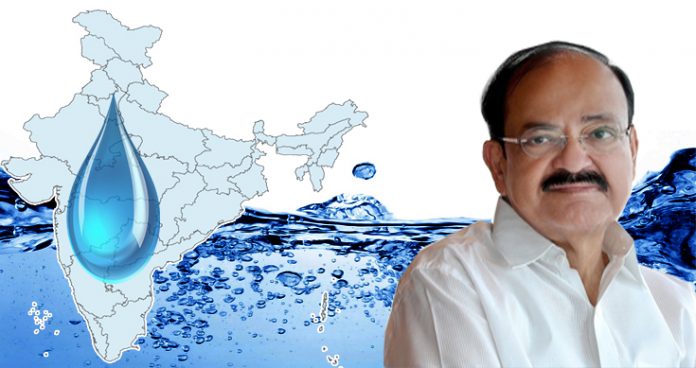Hyderabad: M Venkaiah Naidu, Vice President of India, today required a ‘Jan Andolan’ on water conservation and underlined the significance of the public’s participation to make it a success. India is a huge nation and nothing would prevail without the public’s participation, he included.
Virtually delivering the inaugural address at the 2nd National Water Awards Ceremony, the Vice President pointed to how Swachh Bharat Abhiyan turned into a mass movement and said he was speaking out of his personal experience as he was the Urban Development Minister when it was started.
Naidu included, “We have many innovative initiatives taken by the honorable Prime Minister, Narendra Modi. All of them are moving forward with the active participation of the people and the involvement of various stakeholders.”
Forewarning said that there was a danger of potable water turning into a scarce resource in the near future unless if the wastage of water is decreased and water conservation is taken up on a war footing, he focused on that the key message that should be taken to individuals repeatedly is that water is a limited resource and not infinite.
Bringing up that just 3% of the water available on earth constitutes freshwater and that just 0.5 % of that was available for drinking,
He stated, “It is the responsibility of every citizen to conserve water and use it judiciously.” He added, “The need of the hour is to change our lifestyles and make water conservation a way of life.”
Portraying water as a scarce natural resource, he said the directive for its conservation must be taken all over and to each side of the nation. Expressing that each drop of water must be saved, he added, “that is conceivable if everyone comprehends the test before humankind”.
Requiring a sustained mass media campaign to make the public aware of the crucial significance of conserving water, he said that schools, universities, colleges, networks, NGOs, and local bodies must become active partners in this initiative.
Expressing that India’s current water requirement is estimated to be around 1100 billion cubic meters for each year and that it is projected to ht 1447 BCM by 2050, he said that with a rising populace, urbanization, industrialization and growing agricultural activities, the water requirement would keep on increasing.
Naidu highlighted that decreased utilization of water also brings about less utilization of energy needed for pumping and providing water to homes, workplaces and farming activities. He included, “In effect, it also will likewise help in decreasing pollution.”
Communicating his happiness that the National Water Policy is being revised to make a robust policy structure for effective water management in the nation, the Vice President said that water governance has been set at the forefront of the nation’s development plan since 2014 and pointed to different projects, including the Namami Gange Program.
He said that Jal Shakti Abhiyan aims at making water conservation a Jan Andolan through asset creation and large-scale communication.
Praising all the winners, including Tamil Nadu, Maharashtra and Rajasthan for winning the first, second, and third prize respectively, he stressed that the awards were intended to recognize the great work done as well as pointed toward inspiring different stakeholders for effecting management of water resources in the nation.
Praising the great work done by the district administration and panchayats, Naidu stated that it indicated the developing sensitivity of local authorities towards the conservation and preservation of natural resources.
He stated, “It is my firm belief that decentralized planning plays a vital role in the planning, execution, and management of natural resources.”
Vice President furthermore recommended to the municipal authorities and other local bodies to make rainwater harvesting compulsory for each new building.
Calling for advancement of watershed development, drip and sprinkler systems for efficient utilization of water, he stated, “Reduce, Reuse and Recycle must be the watchwords if we have to handover a sustainable and liveable planet to the future generations”.







